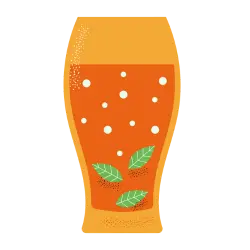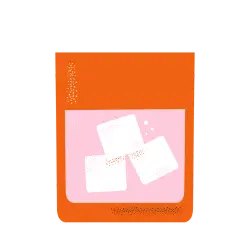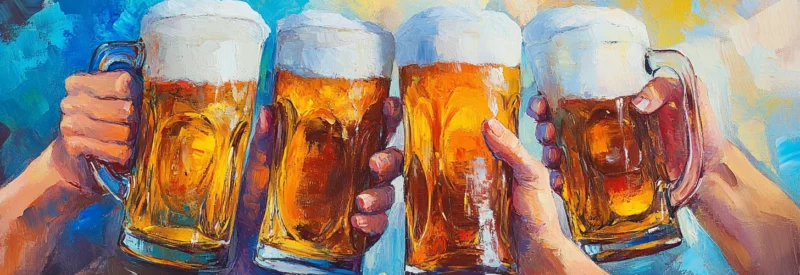Any business hoping to contribute to Illinois’ thriving food, beverage, and entertainment industry will eventually need to acquire a liquor license. Of course, many Illinois-based businesses rely heavily on alcohol sales to generate revenue. Unfortunately, applying for a liquor license can be challenging and time-consuming. To apply, merchants must visit a local ABC (Alcoholic Beverage Control) office and subsequently alert the public of their intentions to begin selling beer, wine, and/or spirits locally.
However, there is a silver lining to all this. Some promising changes have since been made to the application process. Last year, Illinois state officials announced that they would unveil a brand-new application portal to make it easier for liquor merchants to apply for state-based liquor licenses.[1] News Channel ABC 20. “Illinois Liquor Control Commission announces online applications.” Accessed On November 12, 2024.
In other words, the liquor licensing scene in Illinois is evolving. With this in mind, it is critical to approach your application in a way that will minimize delays and hold-ups. Applying for a liquor license also comes with many questions: How can I apply for one? How much does it cost? What are the different license types?
In this practical How-To guide, we’ll try to answer all these questions, plus more. We’ll also discuss the laws that regulate this industry, how the nature of your business affects the license you’ll want to apply for, and other related topics. Read on to learn more!
Types of Illinois Liquor Licenses
Merchants hoping to apply for a liquor license in Illinois must first obtain a local liquor license. The state’s Liquor Commission requires that merchants submit a copy of their liquor license as part of their application. It is worth mentioning that each municipality maintains its own requirements for possessing a liquor license. Merchants must adhere to local municipality requirements before proceeding with their application.

Illinois makes room for several classes of state licenses. Some of these subcategories include manufacturers, retailers, and wholesalers. Some licenses are reserved for niche businesses like airlines and out-of-state distributors; others encompass more conventional alcohol-related businesses such as liquor stores. We’ll begin by discussing the retailer license class before moving on to other license types.
Retailer’s Liquor License
Merchants who own a bar, liquor store, or restaurant will likely want to apply for a Retailer’s permit, which allows retailers to sell alcohol for on-site consumption.
Caterer Retailer Liquor License
This license allows businesses to sell “alcoholic liquors” for consumption either off-site or on-site. Merchants who own this liquor license do not need to license the catering location. That said, “alcoholic liquors” and prepared meals will be sold at the agreed-upon cost.
Special Use Permit (One-Day)
A One-Day Special Use Permit lets retailers move alcohol from a licensed premises to a location permitted for a one-day special event. You must possess an official state liquor license to be eligible for this license category.
Other types of liquor licenses in Illinois
Here are some additional liquor license types available to Illinois-based businesses:
- Airplane Liquor License
- Auction Liquor License
- Brew Pub Liquor license
- Boat Liquor License
- Distilling Pub License
- Railroad Liquor License
- Special Event Liquor License (Non-Profit Entity)
- Special Use Permit (2-15 Days)

What type of liquor license do I need?
There are a few variables that factor into the exact type of liquor license you will need to get your business up and running. The two primary factors are the exact nature of your business activities and the physical space you will occupy. For instance, a neighborhood bar will likely need to apply for a Retailer’s liquor license. A more rarefied option—in this case, we’ll refer to a boat that happens to have a bar on board—will need to apply for a more rarefied license (in this case, a Boat liquor license).
Suppose a merchant operates a catering company that travels from location to location and does not maintain a single brick-and-mortar locale as their base of operations. This merchant will need a Caterer Retailer liquor license. Emphasizing the specificities of your business will help you determine what kind of license you should apply for, how much it will cost, and how it can improve your financial strategy in the long run.
It is important to remember that not all businesses can be grouped under the Retailer license category. Merchants selling or manufacturing booze as wholesalers will need to look more closely at various wholesaler or manufacturer license options on the state’s Liquor Control Commission site.
Liquor License Requirements for Illinois
We’ve unpacked how various liquor license types differ from one another. Now, let’s explore what merchants will need to provide in submitting their Retailer application:
- Photocopy of your most recent Local Liquor License (obtained from your local municipality).
- Photocopy of Certificate of Insurance. This is primarily if your business plans to permit on-site alcohol consumption. Keep in mind that this is different from the Policy Declaration.
- Proof of Purchase for the property, which can be presented in the form of a lease or recorded deed.
- Check or money order for the fee, made payable to the Illinois Liquor Control Commission (ILCC).
- Federal Employer Identification Number.
- Illinois Sales Tax Account ID.
- Official name of entity or company.
- Mailing address.
- Any existing retail liquor licenses in other states (details provided must include business name, city, and state).
- Details related to business registration.
- Details related to ownership (addresses, names, positions, phone numbers, Social Security Numbers, etc.)
- Doing Business As (DBA).
- Details related to business location.
- Business type (bar, hotel, liquor store, restaurant, etc.)
- Location of inventory warehouse.
- Applicant’s license history.
- Authorized operational hours.
- Available operational hours.
- Applicant’s contact information.
The requirements mentioned above are strictly for state licenses. To successfully apply for an Illinois liquor license, a merchant must possess a local liquor license from their regional municipality.

Other necessary permits
Applying for a local liquor license from your municipality’s ABC can take much time and effort. Consequently, we encourage merchants to get a head start on applying to avoid any hiccups.
Other cities within Chicago’s borders have even more requirements for liquor license holders. This is especially true if the licensee wishes to conduct business activities outside of what a standard retail license allows.
Let’s use an example to see how this might play out: if you are a Chicago-based liquor business hoping to start serving drinks after 2:00 am, you must proceed to apply for a “Late Hour License.” This license extends the right to serve alcoholic beverages until 4:00 am, Monday through Saturday, and until 5:00 am Sunday.[2]Chicago.gov. “Classes of Liquor Licenses.” Accessed On November 12, 2024. Contact your regional city authorities to clarify which local licenses you must obtain.
Understanding Liquor Laws in Illinois
Any Illinois liquor merchant hoping to avoid criminal or financial repercussions must dutifully follow local liquor license laws. Below, we will further unpack some of the state’s more noteworthy laws surrounding the sale of alcohol:
- It is against the law to sell alcohol to an inebriated or impaired individual.
- You cannot sell alcohol to anyone below the legal drinking age (21).
- You must be 18 years old to engage in the sale or preparation of alcohol.
- To sell alcohol in Illinois, including beer, wine, liquor, and spirits, you must possess a local and state liquor license.
Certain municipalities have established their own liquor laws. A typical example would be laws related to permissible hours of sale. For the safest results, get familiar with your local liquor laws. Remember that state laws are subject to change, and merchants must stay current on all pertinent industry developments.
How Much Does a Liquor License Cost in Illinois?
The price of local liquor licenses varies according to the municipality. Of course, state liquor licenses can get expensive, so merchants need to reserve some wiggle room in their budget.
Below, we’ll get into the pricing for the retail license options available in Illinois:
- Retailer’s Liquor License: $750
- Airplane Liquor License: $150 per plane
- Auction Liquor License: $150 per auction
- Boat Liquor License: $1,000
- Brew Pub Liquor License: $1,500
- Caterer Retailer Liquor License: $500
- Distilling Pub License: $1,500
- Railroad Liquor License: $150 per dining, lounge, buffet, or club car
- Special Event Liquor License (Non-Profit Entity): $25
- Special Use Permit (One Day): $150
- Special Use Permit (2-15 Days): $250
See this complete list of pricing options for businesses, manufacturers, or wholesalers operating in a different license class.
How to Apply for a Liquor License in Illinois

No one gets into the liquor business because it’s easy. Indeed, the application process, from initial planning to renewal, is fraught with challenges.
Merchants must visit a local ABC office and apply for a local liquor license before acquiring their state liquor license. Some business owners may have to alert the public of their intention to obtain a local liquor license via local advertisements. Oftentimes, this depends on the municipality in question.
Similarly, while Illinois has tentatively planned to allow retailers the option to submit their applications via an online portal, this procedure has yet to be set in stone. Retailers must still submit their applications to the email address listed in the application form.
Within three to seven days of submitting your application, applicants are obliged to pay license fees via money order payment or check to one of the two addresses listed in the application.
How to Renew Your Illinois Liquor License
Applying for a liquor license in Illinois can be a stressful process. Having said that, renewing your license is a significantly less arduous ordeal.
The most straightforward method of renewing one’s license is via MyTax Illinois. To initiate this process, log into your MyTax Illinois account and click “LCC Account Type.” You can find this subheading next to your “License Number.” If you do not already have a MyTax Illinois account, you must create one to continue this process.
Then, locate the expiration date and click the “Renew” link. Please be diligent in filling out all required details and be sure to attach any requested forms.
Getting a Beer and Wine License in Illinois: Closing Thoughts
If you follow this guide and don’t deviate from the established plan, you will likely be approved for an Illinois liquor license. Granted, the process of obtaining a liquor license comes with many steps. However, the relevant authorities are working to render the process as simple as possible via online application and renewal. Once you receive your liquor license, your bar or restaurant will enjoy access to an expansive, entertainment-centric economy with over 8.6 million consumers over the age of 21.[3]Infoplease. “IL Demographic Statistics.” Accessed On November 12, 2024.
Today, the liquor business is seen as an evergreen industry. Still, many beer, liquor, and wine businesses require access to consistent, reliable payment processing solutions. Many prominent providers are skittish about working with “regulated” industries.
Finding the ideal partner for your liquor business can undoubtedly be a challenge. Fortunately, there are merchant service providers working in the alcohol industry whose expertise and years of experience may be just what you need. Forging an enduring partnership with a provider who understands the demands of your alcohol-related business will all but ensure smooth, stress-free processing. Don’t wait another second—connect with the provider of your dreams today!
FAQs
How long does it take to get a liquor license in Illinois?
The updated online application process for acquiring an Illinois liquor license is such that many state licenses are issued in three to seven days. However, merchants are required to obtain a local liquor license first. Hence, the process can sometimes take longer. In some instances, getting a state liquor license may take up to two months if the merchant still needs a municipal one.
Do you need a liquor license to sell beer or wine in Illinois?
The short answer is yes. Any Illinois business hoping to distribute or sell wine and beer will eventually require both state and local liquor licenses.
Is it hard to get a liquor license in Illinois?
As long as you follow the correct protocols, there should be no issue procuring a liquor license in Illinois. The only part of the process that makes the whole thing slightly more complicated is the mandate that merchants procure a local license before applying for a state one. Illinois issues thousands of liquor licenses annually, making it a far more prosperous market than states that impose more severe restrictions on beer, wine, and liquor businesses.
How long does an Illinois liquor license last?
Merchants wondering how to get a liquor license in the state of Illinois should know that most liquor licenses in the state last up to a year. However, your first liquor license may end up lasting less than a full year if you apply after the twelve-month period that begins on your license’s issuing date. There are also temporary licenses reserved for special events with a much shorter expiration window.
How do I get a temporary or one-day liquor license in Illinois?
As mentioned, “Special Event” licenses are available in Illinois, most of which are temporary or single-day. Interested liquor merchants can apply via MyTax Illinois. Merchants should apply at least two weeks before any planned events lest they incur a $25 late fee.




